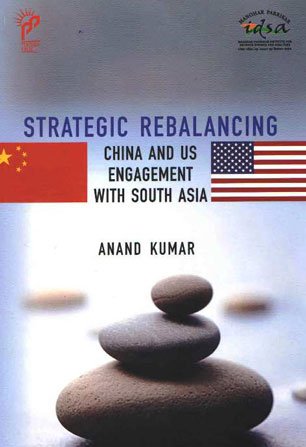Impossible Devolution? The Failure of Power-Sharing Attempts in Sri Lanka
The concept of a ‘primordial homeland’ has been at the centre of Sri Lanka’s armed struggle, in which both Sinhalese and Tamil nationalisms have used claims of ancient and ethnically determined territories to justify their right to self-determination, territorial sovereignty and armed struggle.
Visas: How They Work—An India–Bangladesh Case Study
A visa is issued to facilitate an individual’s travel to another country in a regulated way. There are agreements between some countries on a no-visa regime; however, most countries do follow some sort of visa system. Typically, a visa allows a person to travel to the destination country as far as the port of entry (airport, seaport or land border crossing) and advises the immigration officer to allow the visitor to enter the country.
Difficulties of Regional Cooperation for Afghanistan: An Alternative Interpretation
This article addresses the question of why regional cooperation among Afghanistan’s neighbours has been so difficult despite these countries’ common concerns. To answer this question, Afghanistan is conceptualised as placed at the core of overlapping regions: South Asia, the Middle East, Central Asia and, through China’s influence, East Asia. Over the past decade, interactions among different regions ‘through’ Afghanistan have increased, and overlap has intensified.
Future of India–Nepal Relations: Is China a Factor?
Nepal shares an open border of 1,868 km with five Indian states (Uttarakhand, Uttar Pradesh, Bihar, West Bengal and Sikkim) and 1,415 km with Tibet. Under the 1950 Treaty of Peace and Friendship with India, Nepali citizens enjoy ‘national’ treatment and Nepali businesses unhindered rights of trade, transit and movement. An estimated six million Nepalese live and work in India and contribute to their inward remittances. Social intercourse along the Gangetic plane is described by people as ‘roti-beti ka sambandh’ (a relationship based on sharing of hearth and marriage).
Depoliticising Illegal Immigration from Bangladesh to India
With the Bharatiya Janata Party (BJP)-led coalition coming to power in India in May 2014, the issue of illegal immigration from Bangladesh has come to the forefront once again. However, the fear is whether the debate over the issue will shed more light, leading to the resolution of the problem, or whether it will simply degenerate into political rivalry and polarisation. Illegal immigration figured prominently in the run-up to the 2014 parliamentary elections and was often raised by one of the leading political parties, the BJP.
Pakistan’s Tactical Nuclear Weapons: Deconstructing India’s Doctrinal Response
The military and scientific leadership of Pakistan has given clear signals that tactical nuclear weapons have a vital role in Pakistan’s nuclear weapons policy. Developed to lower Pakistan’s nuclear threshold, these weapons may further deter India from launching a conventional strike to punish Pakistan for its sub-conventional war against India. This has led to a debate on the possible doctrinal responses that India could adopt to counter Pakistan’s tactical nuclear weapons.
Domestic Politics of Bangladesh and India–Bangladesh Relations
The foreign policy of a country generally changes incrementally but in the case of Bangladesh it changes dramatically towards India depending upon which political party or alliance is in power. The ideological cleavage prevailing in the country affects not only its domestic politics but also its relationship with its neighbour India. In this article an attempt has been made to explain why and how the domestic politics of Bangladesh affects India–Bangladesh relations.
The Tamil Nadu Factor in Post-war Sri Lanka: Perspectives of Tamils and Muslims
Growing international concerns about human rights violations in the last phase of the Eelam war and the continued surveillance and intimidation of the Tamils in Sri Lanka have drawn the attention of their co-ethnics across the world. The southern Indian state of Tamil Nadu, which had detached itself from the political events in Sri Lanka after Rajiv Gandhi’s assassination, has renewed its interest. In the post-war phase, the plight of Sri Lankan Tamils has become an emotive issue.
















